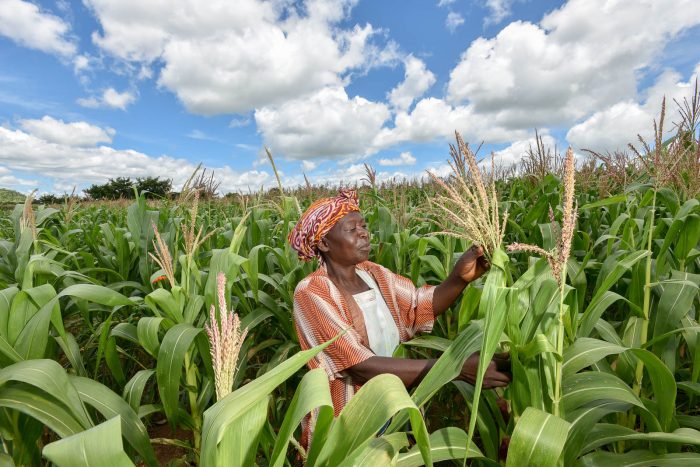14 October 2022
Crop-breeding programs work hard to produce varieties with high yields and resistance to climate change and plant disease. In many cases, the success of this work is measured in ‘genetic gain’ – an indicator of improvements in one or more variety traits after several breeding cycles. But even though this work has produced material with high potential, it is evident that there are barriers to its adoption by farmers.

Being a researcher with more than 10 years of experience working with data to support decision-making in agriculture, I have witnessed several examples where there was limited success in attempting to promote new practices to farmers. From this experience, I developed a professional and personal interest in delving deeper into this topic – exploring ways to conduct research that not only focuses on offering solutions to farmers, but also takes into account farmers’ perspectives and interests at the outset.
This is also the focus of the 1000FARMS project, in which I will participate as a Ph.D. student at Wageningen University and as a member of PE&RC for the coming four years. In this project, I will work on estimating genetic gain and modeling the performance/acceptability of crop varieties in different environmental and socio-economic contexts.
The data will be collected using tricot – a research methodology that helps farmers to identify the most suitable technologies for the local conditions of their farm. While in the crop breeding work there is already a strong theory for quantitative trait analysis to measure the genetic gain and performance of different varieties, methods for analyzing traits based on ranking responses as is done in tricot remain limited. Therefore, part of my work will be oriented on studying and developing these methods.
My research will contribute to 1000FARMS’ aims of providing to breeding programs inputs on farmers’ preferences that can be used in the development of new varieties. In this way, it contributes significantly to the objective of developing future varieties with higher potential of acceptability by farmers.


